Submitted by WA Contents
Hello, Robot. Design between Human and Machine exhibition opens at Vitra Design Museum this week
Germany Architecture News - Feb 06, 2017 - 11:40 19465 views
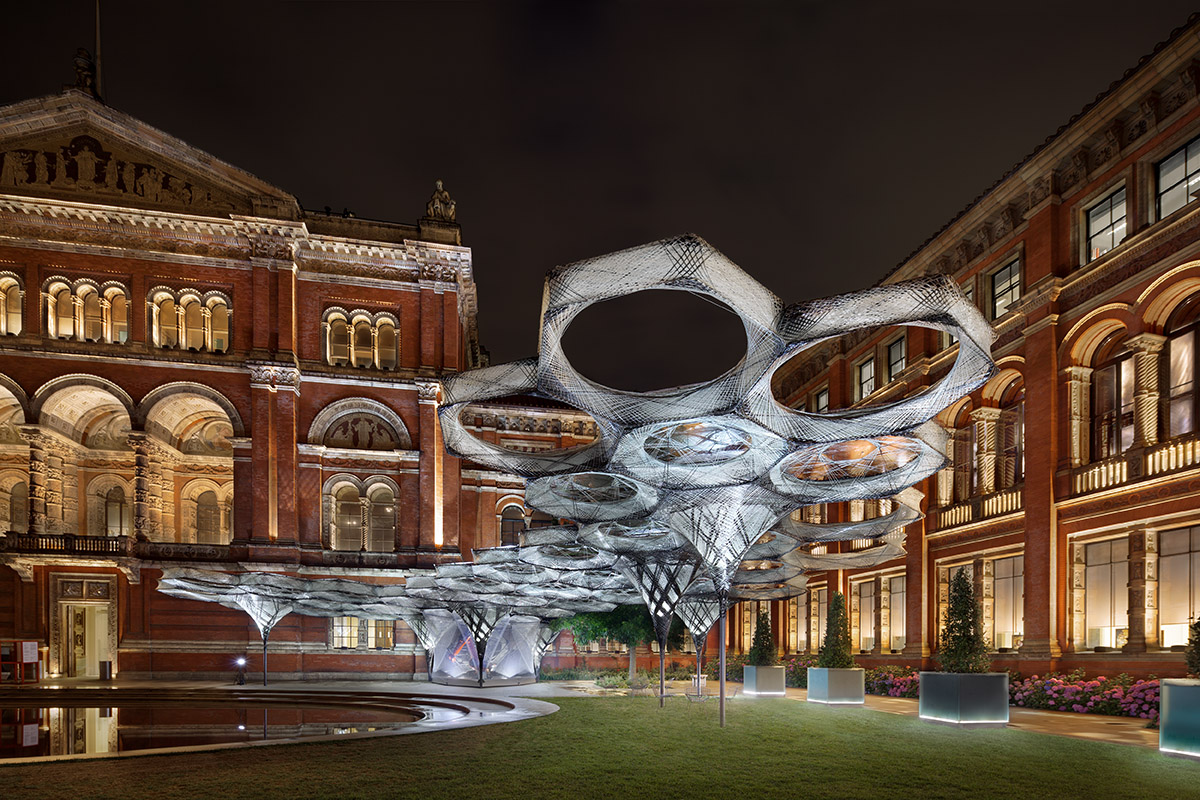
Vitra Design Museum opens one of its major exhibitions this week called ''Hello, Robot. Design between Human and Machine'', which examines the current boom in robotics in detail for the first time. The museum's robotic show will comprise more than 200 exhibits from the fields of design and art and will include robots used in the home, in nursing care, and in industry as well as computer games, media installations, and examples of films and literature in which robots feature.
The exhibition will run from 11 February to 14 May 2017 at the Vitra Design Museum in Weil am Rhein, Basel-it will show the wide variety of forms that robotics takes today and at the same time broaden our awareness of the associated ethical, social, and political issues.
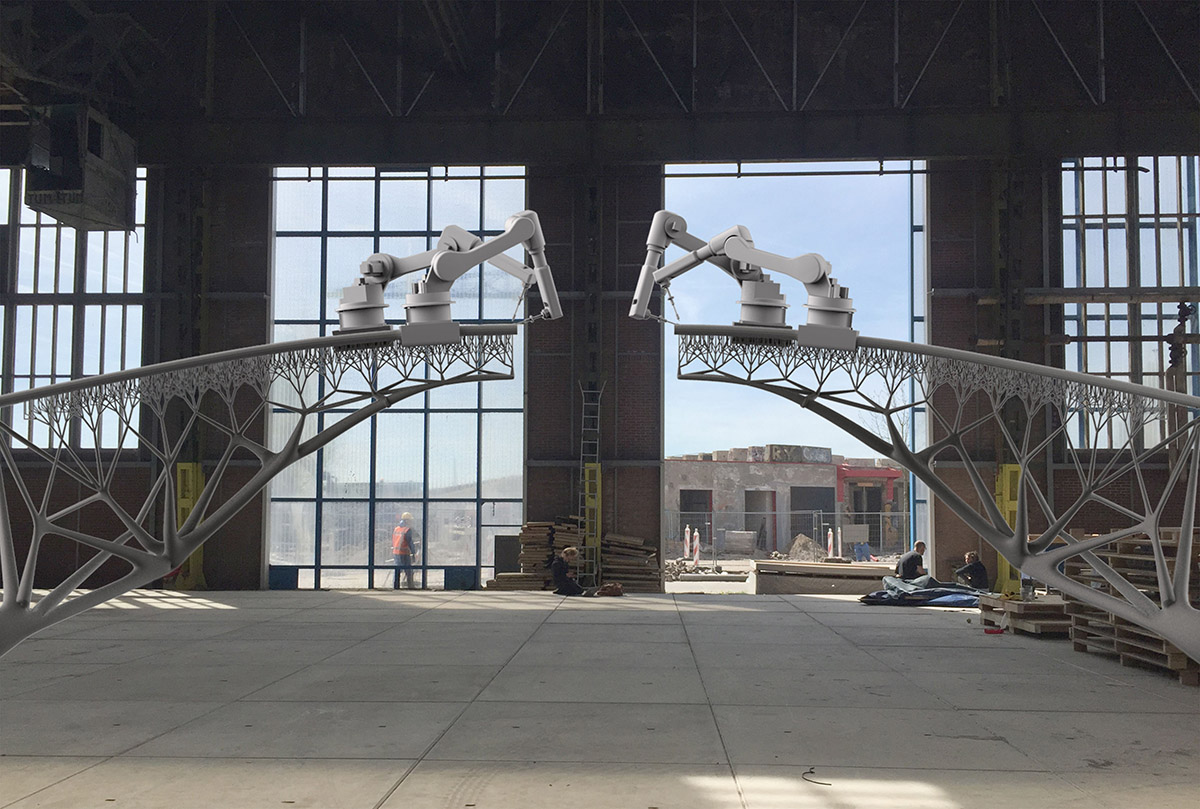
Joris Laarman for MX3D, Bridge Project, 2015. Pedestrian bridge 3D printed by robots. Image © Joris Laarman Lab
''Whether in the form of delivery drones, smart sensors, or Industry 4.0 — in recent years, robotics has found its way into our everyday lives, changing them in funda- mental ways. Design has a central role to play in this process, for it is designers who shape the interfaces between humans and machines,'' said the museum about the exhibition.
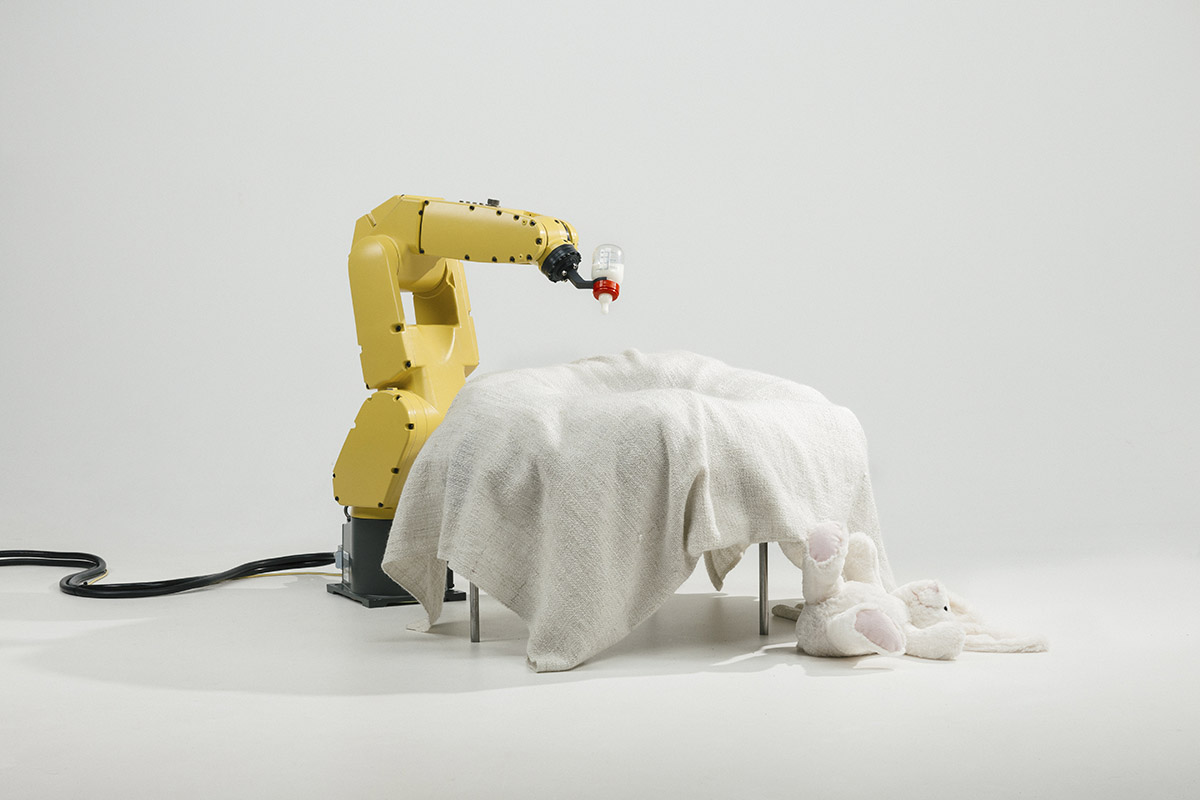
Stephan Bogner, Philipp Schmitt und Jonas Voigt, Raising Robotic Natives, 2016. Image © Jonas Voigt
Hello, Robot introduces visitors to robots in four steps. The first section of the exhibition traces the fasci- nation that artificial humans have long exerted on people in the modern age and looks at how popular culture has shaped our perception of robots.
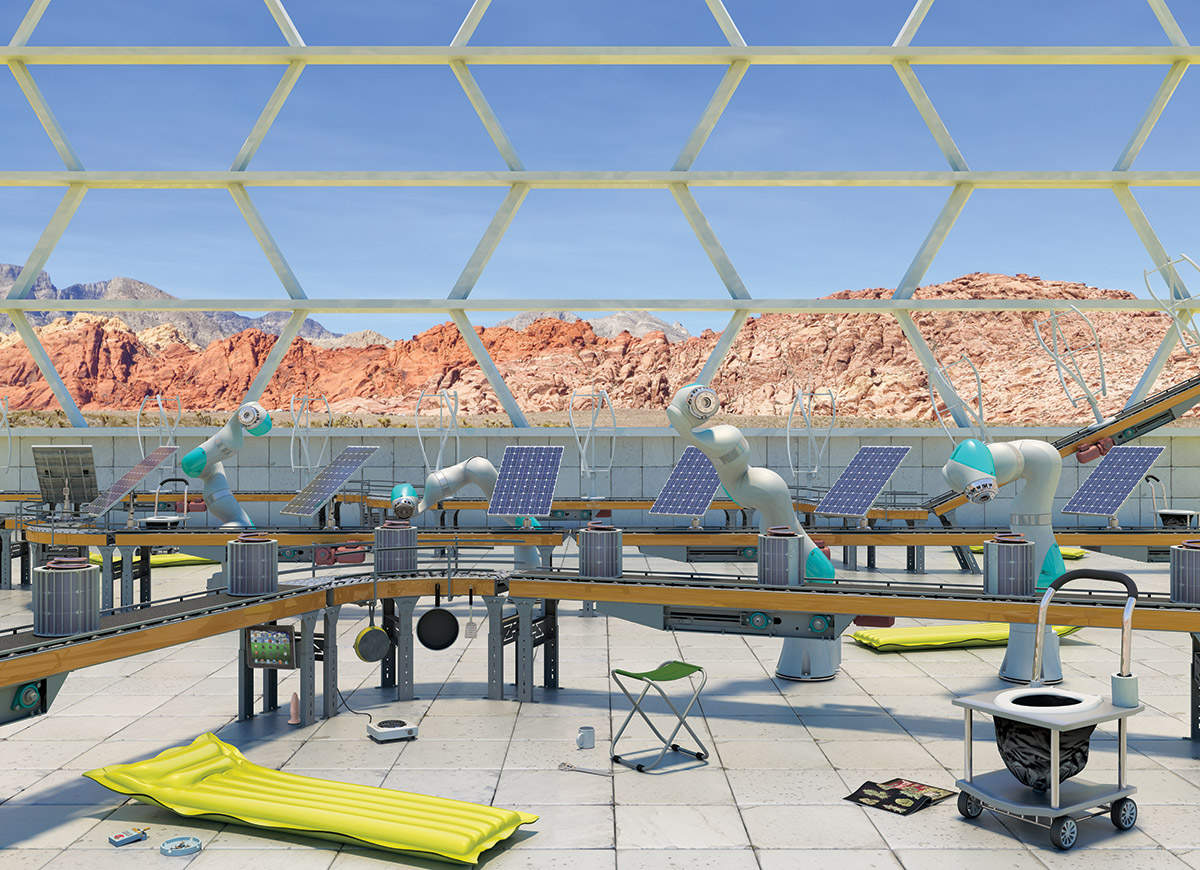
Shawn Maximo, Going Green, 2016, Vinyl print. Image © Shawn Maximo
The second section is devoted to the field in which robotics first made a breakthrough: industry and the world of work. Whereas robots are typically perceived in this context as a threat to jobs, Hello, Robot. looks at the current debate on this subject from a number of very different perspectives.
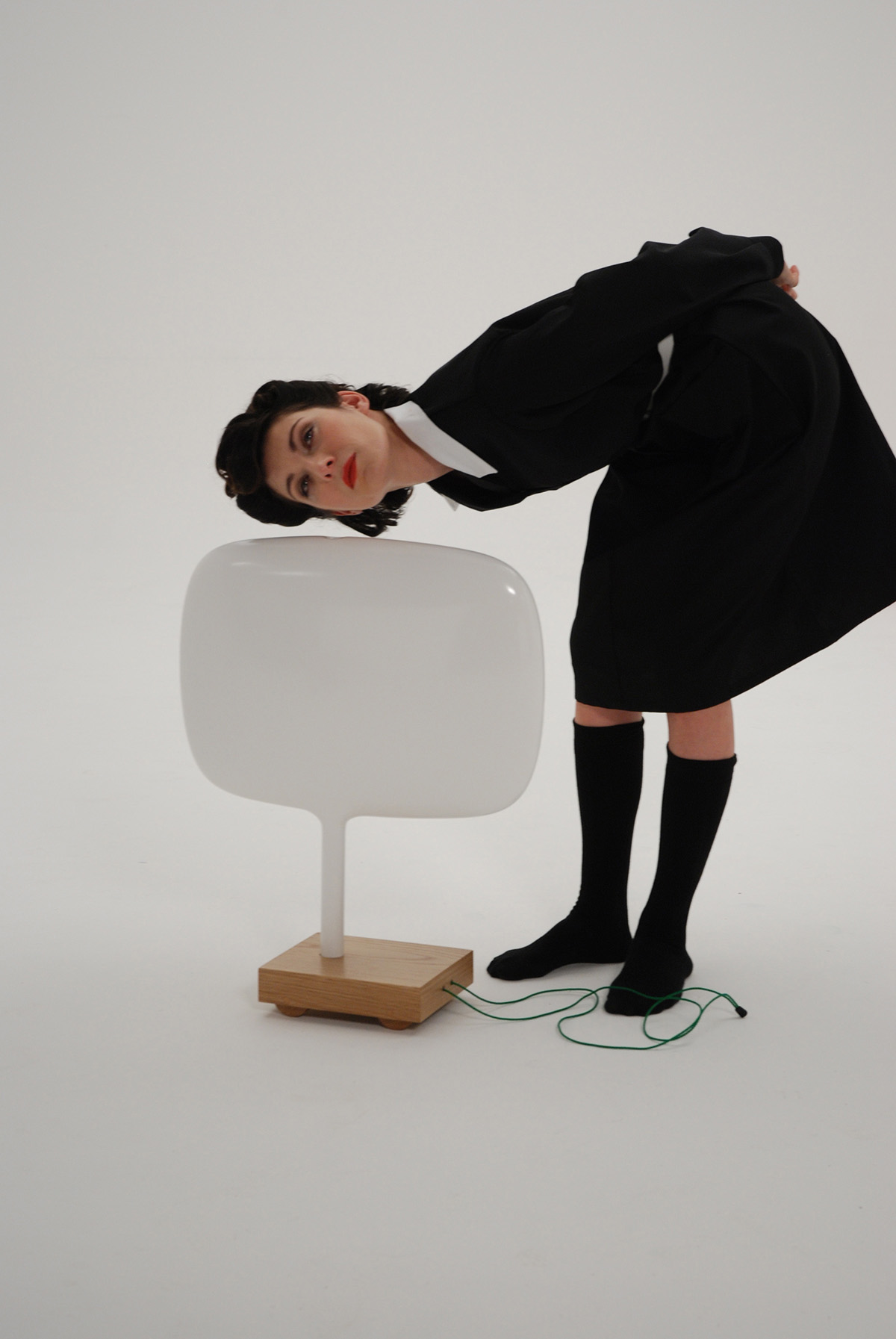
Dunne & Raby, Robot 4: Needy One, from Technological Dream Series: No. 1, Robots«, 2007. Image © 2016 Dunne & Raby, Photo: Per Tingleff
The spectrum of exhibits ranges here from classic industrial robots to an installation by the group RobotLab, in which a robot produces manifestos on a production line, thus questioning where the boundary lies between work that can be automated and human creativity.

Christoph Niemann, Robot Morph, 2016. Image © Christoph Niemann
The third section of the exhibition shows how we are gradually coming face to face with the new technology – as a friend and helper in our everyday lives, in our households, in nursing care, as a digital companion, or even in cybersex.
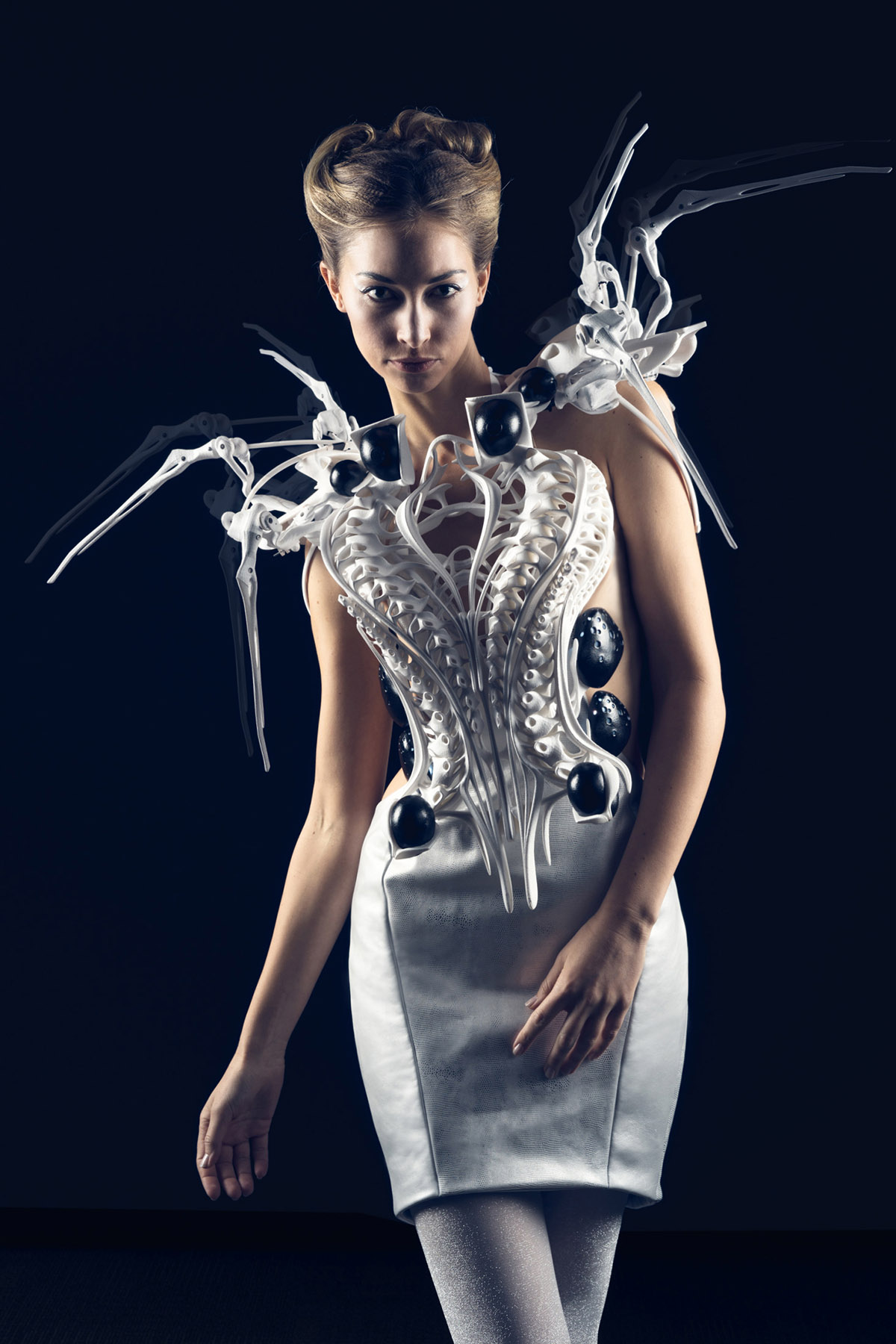
Anouk Wipprecht, Spider Dress 2.0, 2015, 3D printed robotic dress. Image © Anouk Wipprecht, photo: Jason Perry
The fourth section looks at the increasing blurring of the boundaries between humans and robots – exemplified by our living in 'learning' buildings, travelling through 'smart cities', or having smart sensors implanted in our bodies.
Outside the museum, the Elytra Filament Pavilion complements the exhibition. This bionic baldachin is an impressive example of the growing influence of robotics on architecture. The individual modules were defined by an algorithm and then produced with the help of an industrial robot.
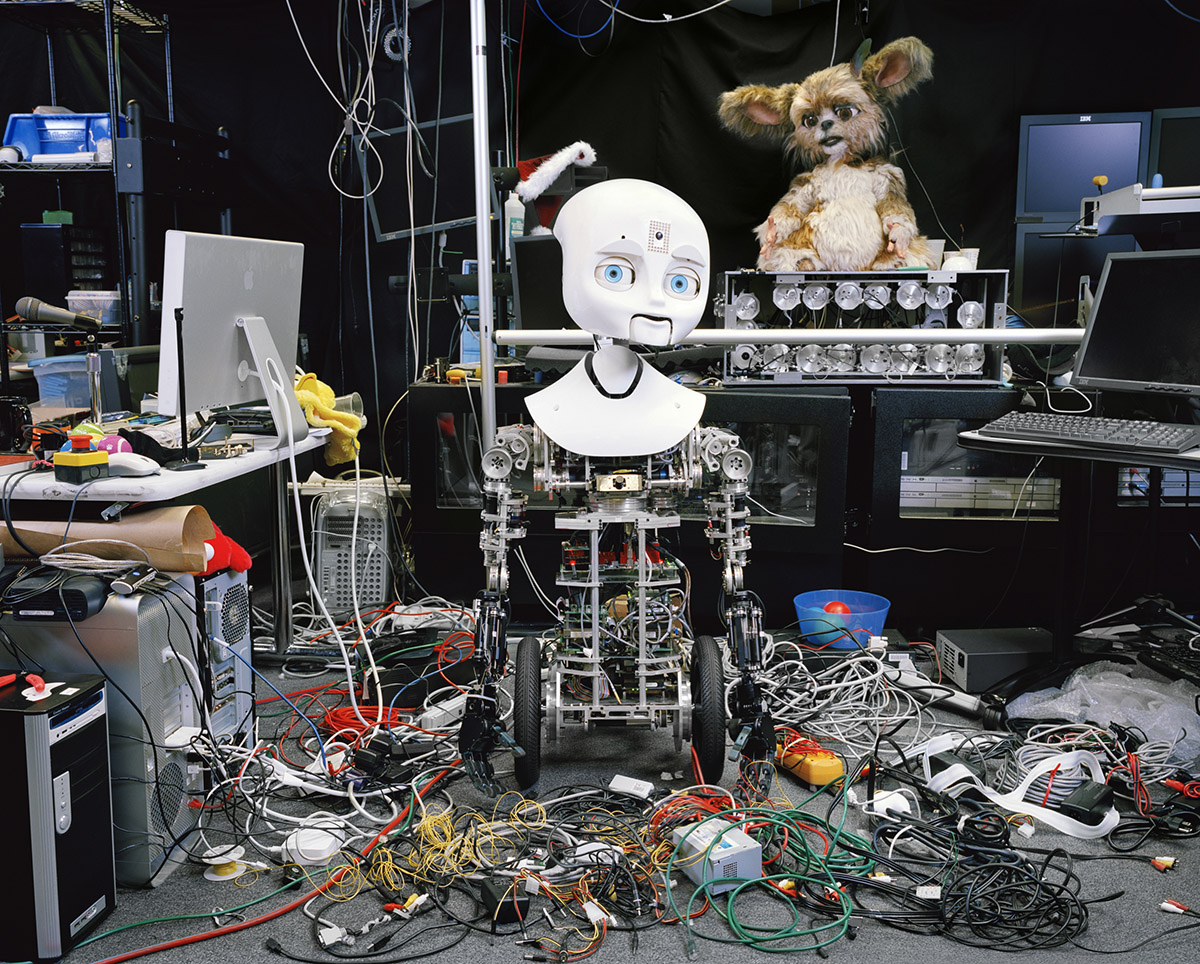
Yves Gellie, Human Version 2.07 Nexi, 2009. Image © Yves Gellie, Galerie du jour agnès b, Galerie Baudoin Lebon
The pavilion was realised by a team from the University of Stuttgart that included Achim Menges and has already been shown at the Victoria & Albert Museum in London. Hello, Robot. shows the ambivalence with which the spread of robotics has been viewed for many decades.
Right from the start, the debate about artificial intelligence has oscillated between utopian and dystopian visions, between the hope of a better, technologically advanced world and the fear of disempowerment. ''In this context, we are once again confronted with the question of the designer’s responsibility,'' said the museum.
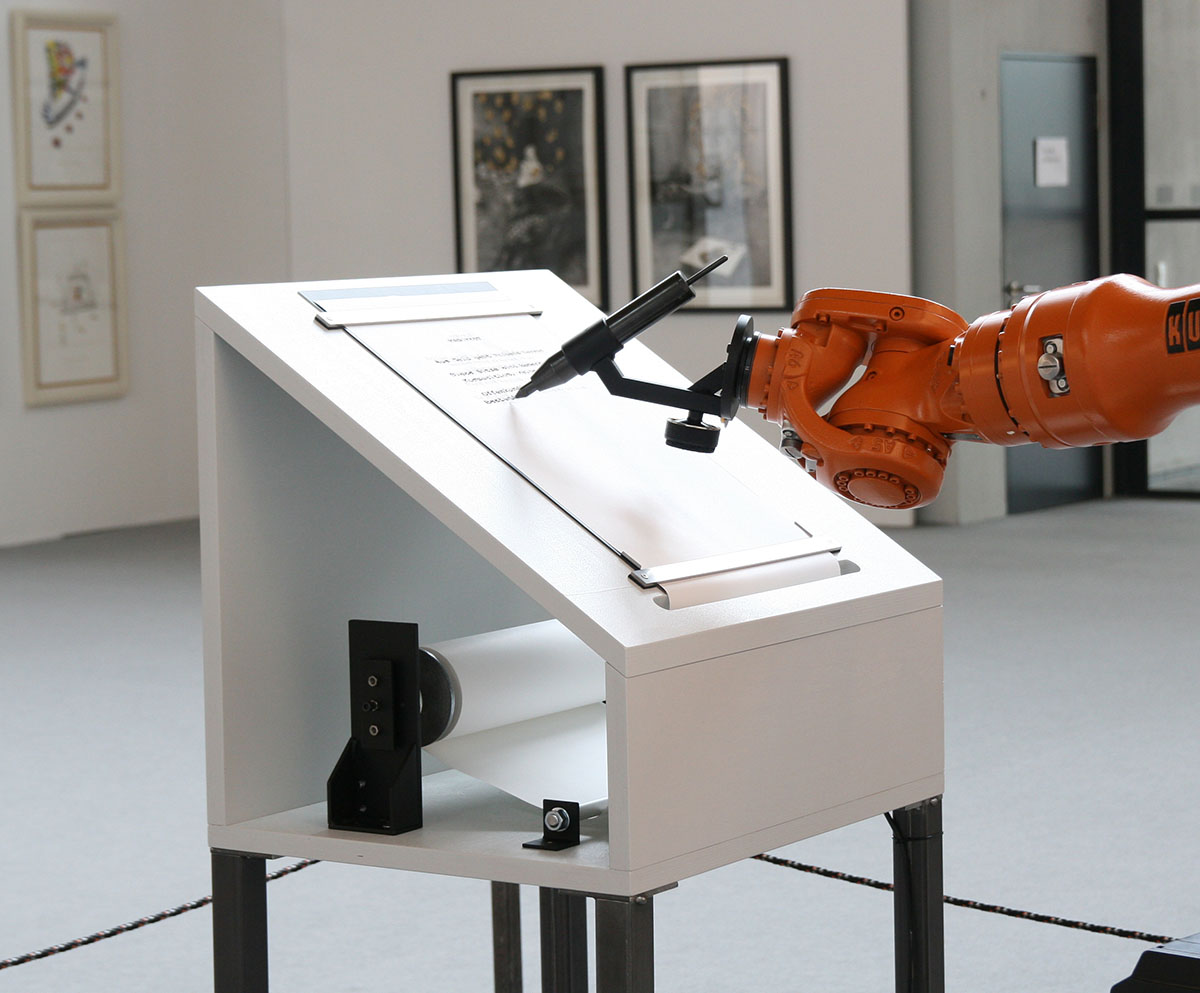
Robotlab (ZKM), »Manifest«, 2008. Image © robotlab/ZKM
The controversy about the right approach to robotics is reflected in fourteen questions that guide the viewer through the exhibition as a kind of leitmotif. They invite visitors to reflect on their own attitudes to new technology and show how closely linked the opportunities and risks attendant on robotics often are. For while robotics has become more approachable, more personal, more essential even, the question remains: Does it make our world any better?
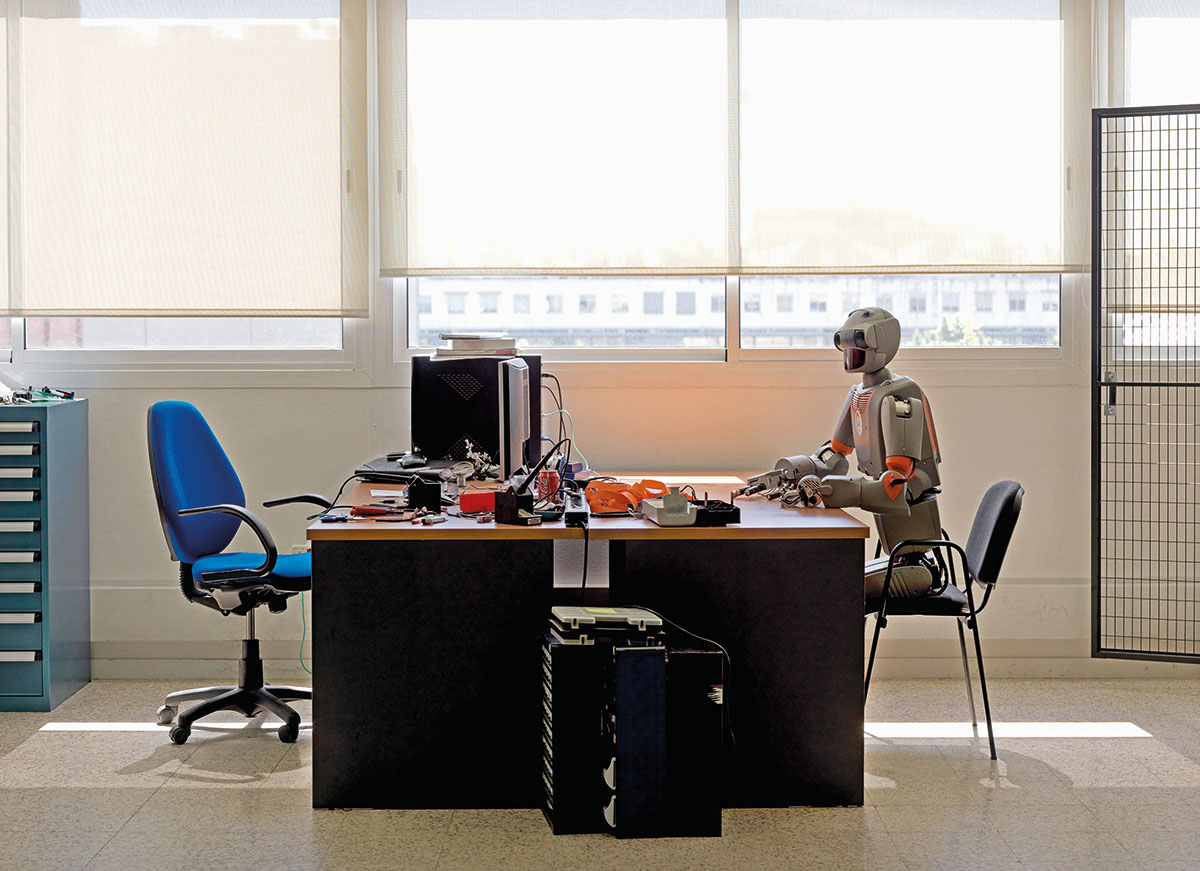
Vincent Fournier, Reem B #5 [Pal], Barcelona, Spain, from: The Man Machine, 2010. Image © Vincent Fournier
The museum will host an extensive programme of talks, films, performances, and workshops will accompany the exhibition and illuminate the theme of robotics from a number of different perspectives. The layout of the exhibition catalogue was programmed by an algorithm in cooperation with Double Standards, Berlin. Key visual: Christoph Niemann.
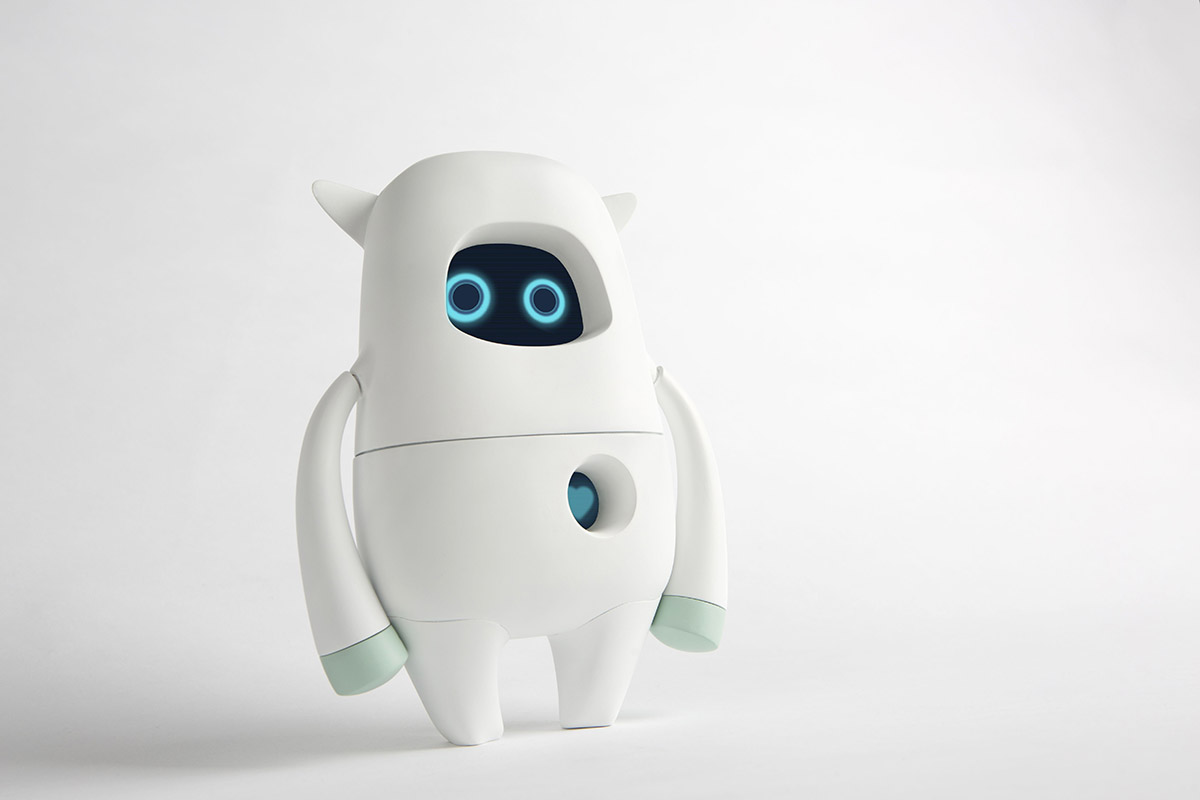
AKA, Musio K. Image © AKA, LLC
The show addresses to 14 major questions in the exhibition: Have you ever met a Robot?-What was your first experience with a Robot?-Do we really need Robots?-Are Robots our friends or our enemies?-Do you trust Robots?-Could a Robot do your job?-Do you want to become a producer yourself?-How much do you want to rely on smart helpers?- How do you feel about objects having feelings?- Do you believe in the death and rebirth of things?-Do you want a Robot to take care of you?- Do you want to become better than nature intended?- Are Robots advancing evolution?- Would you live in a Robot?.
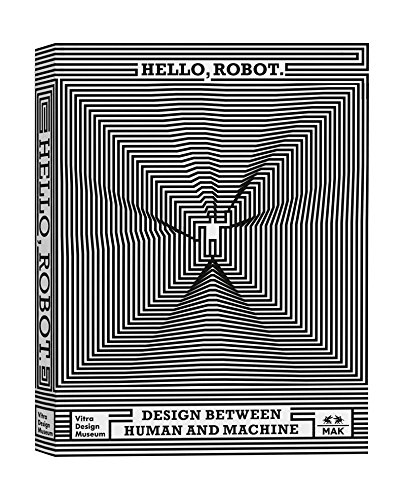
The Vitra Design Museum also published a book in conjunction with the exhibition exploring all the places where we are already encountering intelligent machines: in industry, the military, and in our everyday environment; in children’s rooms and retirement homes; in our bodies and in the Cloud; in shopping and sex; in computer games; and, last but not least, in films and literature.
The book features essays and interviews examining in more detail how we are dealing with the fact that our environment is becoming ever more digital, ever smarter, and ever more autonomous. They highlight our – often ambivalent – attitude to new technologies and discuss the ethical and political questions that robotics raises for us as individuals and for society as a whole.
Contributors include Rosi Braidotti, Douglas Coupland, Anthony Dunne & Fiona Raby (Dunne & Raby), Chris- toph Engemann, Paul Feigelfeld, Gesche Joost, Carlo Ratti, Amelie Klein, Carlo Ratti, RobotLab, Bruce Sterling and many more.
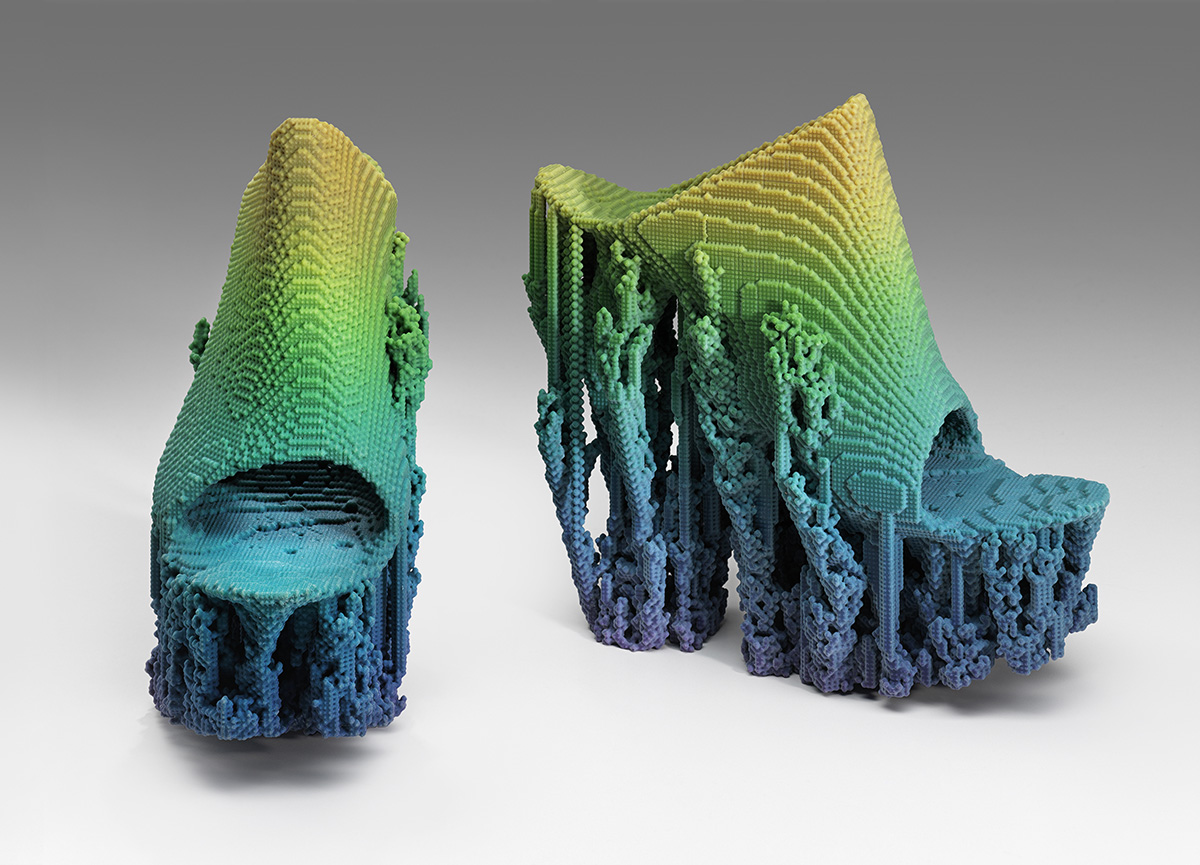
Francis Bitonti Studio Inc., Molecule Shoe, 2015 3D print. Image © Francis Bitonti/Photo: 2017 Museum of Fine Arts, Boston
Carlo Ratti, director of the Senseable City Laboratory at the renowned Massachusetts Institute of Technology (MIT) in Cambridge, Massachussetts, will deliver a talk on his works on April 20, 2017 at the Vitra Design Museum-his works offer fascinating insights into the future of the digital city at the Senseable City Lab.
The architect Achim Menges, founder and head of the Institute for Computational Design at the University of Stuttgart, is regarded as a pioneer in the area of robot-assisted architecture will also deliver a lecture on May 4, 2017 at the Vitra Design Museum- Menges will talk about his buildings and about the general role of robotics in architecture.
Achim Menges is the designer of the Elytra Filament Pavilion for the V&A in collaboration with Jan Knippers.
World Architecture Community also featured the video of Vitra Furniture Factory within the scope of Life & Architecture Series, which shows how a German furniture design company supports an innovative architecture through employing cutting-edge contemporary architects.
Top image: Elytra Filament Pavilion Installation view: Victoria & Albert Museum, London. Image © NAARO, 2016
> via Vitra Design Museum
